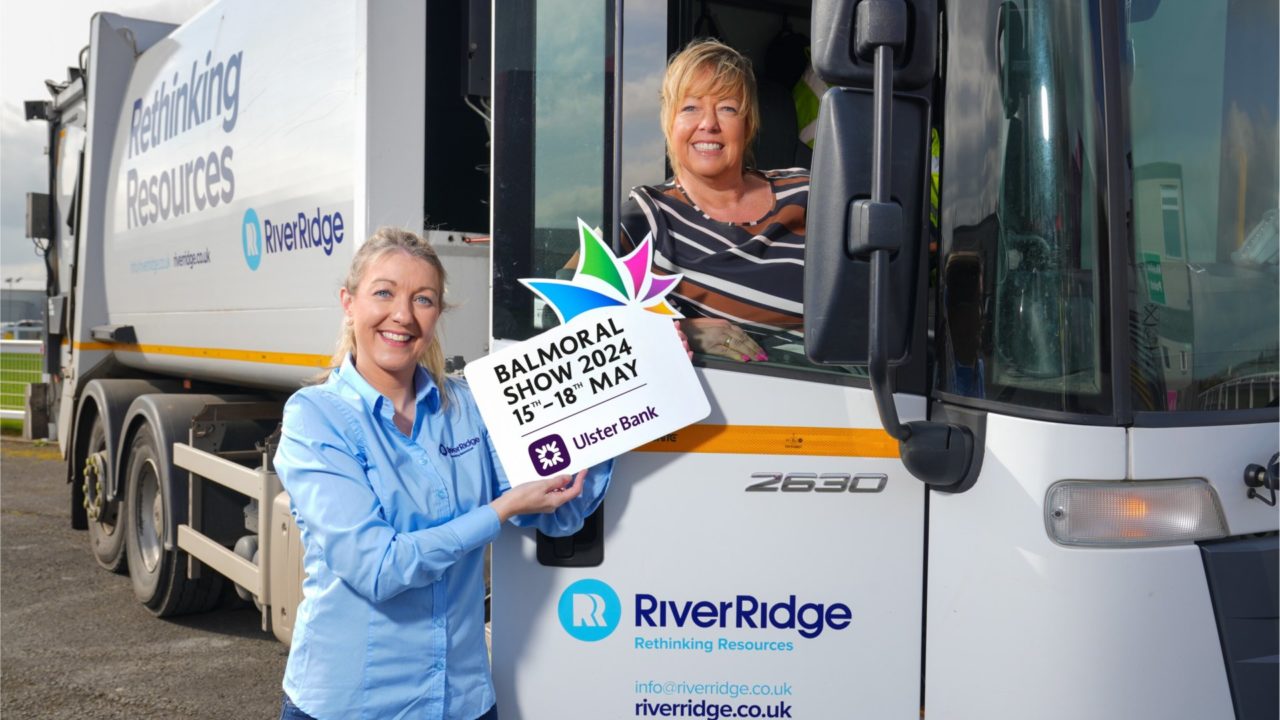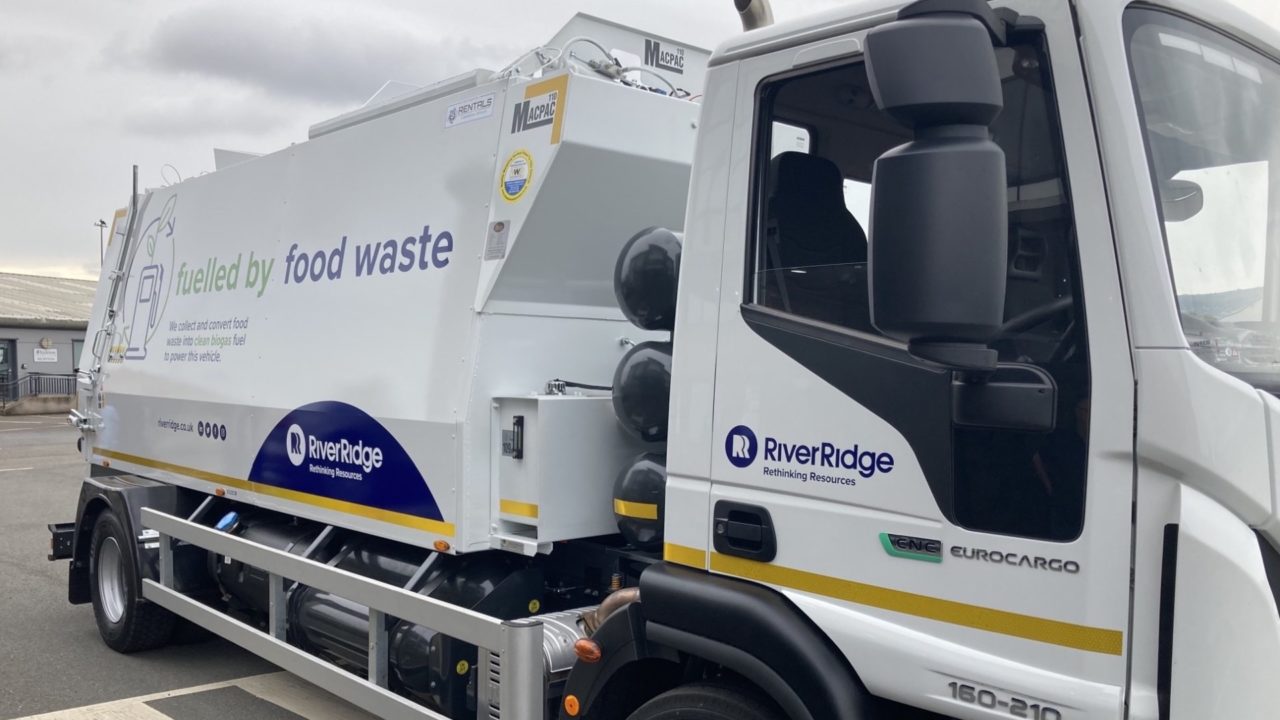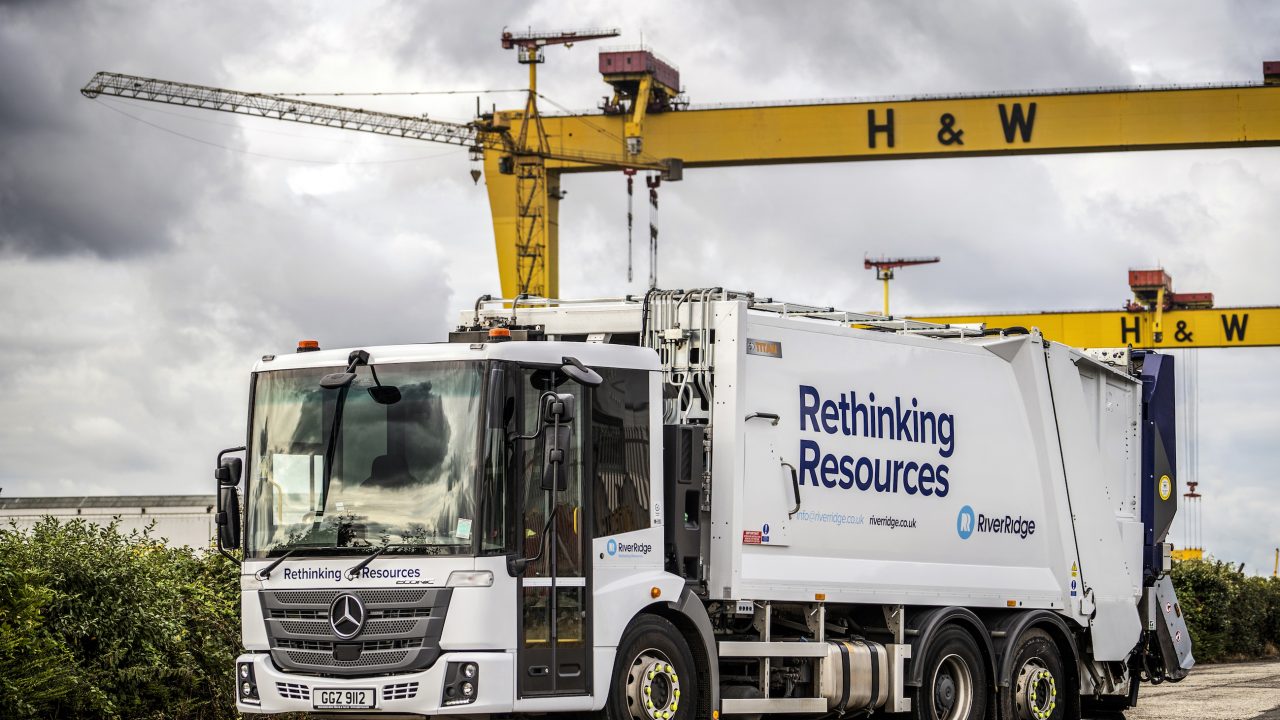
RiverRidge Becomes Latest Member of Women in Business NI
As Northern Ireland’s leading waste and resource management company, RiverRidge is committed to encouraging diversity and empowering our team members to thrive within the workplace.

RiverRidge Statement – Fire at Craigmore Facility
At around 3am this morning (Friday 17th January) a fire was detected at our Craigmore Facility.

International Men’s Day 2024: Meet Ben Forsythe
What inspired you to take on a leadership role in your local church?

International Men’s Day 2024: Meet Brian Anderson
What do you hope to instil in the next generation through your work with the team?

International Men’s Day 2024: Meet Matthew Snoddy
Can you tell us a bit about your journey and how you started out?

RiverRidge Renews Sponsorship with Coleraine FC
Coleraine FC has announced the renewal of its sponsorship agreement with RiverRidge, a leading waste and resource management company in Northern Ireland…

RiverRidge Crowned Road to Net Zero Champion 2024
Leading waste and resource management company, RiverRidge, has won the Road to Net Zero Champion award at the annual Export and Freight Transport and Logistics Awards 2024.

RiverRidge Invests in Glass Waste Collection Service
NORTHERN Ireland’s leading waste and resource management company, RiverRidge, has announced a significant investment in its glass waste collection service following receipt of two new state-of-the-art biofuel vehicles, that will see it increase its footprint and service offering across the region.

RiverRidge Encourages Companies to Support Sustainability in Waste
NORTHERN Ireland’s leading waste and resource management company, RiverRidge has announced its continued sponsorship of the upcoming Northern Ireland Waste and Resource Management Conference, as it calls upon all local companies to set ESG targets for their business and replicate the trend reported by the manufacturing sector, which has seen 62% of manufacturers implement ESG targets since 2021. (source Manufacturing Month NI).

Cube Infrastructure Fund III and Equitix Managed Funds complete the acquisition of RiverRidge Holdings Ltd
Cube Infrastructure Managers and Equitix Investment Management are pleased to announce they have jointly completed the acquisition of a majority stake in leading waste management and energy recovery organisation in Northern Ireland, RiverRidge Holdings Limited, through funds controlled by them.

RiverRidge Returns as Waste Management Partner for Balmoral Show
NORTHERN Ireland’s leading waste and resource management company, RiverRidge, has announced it is returning as the waste management partner of this year’s Balmoral Show for the eighth consecutive year, in addition to returning as a sponsor, as the largest show in the region’s agri-food events calendar continues to place sustainability at the forefront of its operations.

RiverRidge Fundraising for NI Children’s Hospice Reaches £90k
RIVERRIDGE, Northern Ireland’s leading waste and resource management company, has reached the incredible milestone of £90k worth of fundraising for its long-term charity partner, Northern Ireland Children’s Hospice.

RiverRidge Sees First Fully Electric Skip Lift Vehicle in Northern Ireland
WASTE and resource management company, RiverRidge has announced that it has taken delivery of Northern Ireland’s first and only fully electric skip lift vehicle, a Renault Trucks E-tech D Wide 4×2 with Hyva skip loader equipment.

RiverRidge Publishes Inaugural ESG Report
RiverRidge is pleased to announce the publication of its first annual Environmental, Social and Governance (ESG) report, an important milestone in demonstrating its commitment to transparent reporting while providing an annual update on the progress it has made towards its ESG goals and ambitions.

RiverRidge Continues Sponsorship of Oxford Bulls
RiverRidge is delighted to continue our support of the Oxford Bulls disability football club, returning as player sponsor for 2024, as the team prepares for its eagerly awaited football tour of Liverpool in June.

RiverRidge: Leading the Way as a Responsible and Sustainable Business
With the increasing drive for businesses to become more sustainable, and the growing importance of ensuring Northern Ireland reaches its target of net zero by 2050…

International Women’s Day 2023: Meet our Machine Operative, Joanna Klepacka
We spoke to our machine operative, Joanna Klepacka about what it means to be a woman in a ‘typically male’ role, and what International Women’s Day means to her.

International Women’s Day 2023: Women Behind the Wheel – Liza Mae Foster
Late last year, our female lorry driver, Liza Mae Foster featured in Road Safe NI magazine from Road Safe NI – a charity that is doing great work to help save lives, as part of their ‘Women behind the Wheel’ feature.

Leading the Charge for a De-carbonised Waste Sector
In its recently published Environmental, Social and Governance (ESG) Strategy, entitled “Rethinking our Future”, waste management company, RiverRidge, set itself a bold objective to reduce its CO2 emissions by 50% by the end of the decade and ultimately de-carbonise its operations.

Information regarding Bin Collections and Closures during the Festive Period
All RiverRidge depots will be closed on the following dates: 25th and 26th December 2019 and 1st January 2020.

Full Circle Completes a Century
NORTHERN Ireland’s only large-scale waste to energy facility, Full Circle Generation (FCG), announced today that it had recovered over 100,000mt of waste since operations began in earnest last August, and that it is also looking to build on this impressive start by increasing throughput to over 140,000mt over the next 12 months.

Acquisition ISL Waste Management Limited business assets
RiverRidge Holdings is pleased to announce that one of its subsidiaries, RiverRidge (Mallusk) Limited has today completed the acquisition of the business assets and customers of ISL Waste Management Limited, following the appointment of administrators to the company.